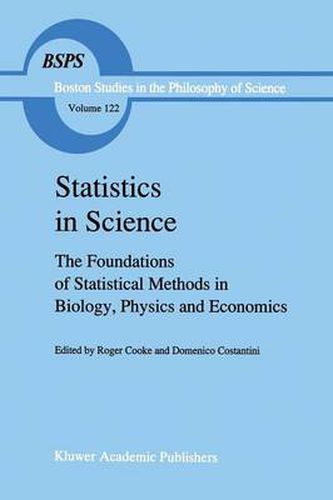Readings Newsletter
Become a Readings Member to make your shopping experience even easier.
Sign in or sign up for free!
You’re not far away from qualifying for FREE standard shipping within Australia
You’ve qualified for FREE standard shipping within Australia
The cart is loading…






This title is printed to order. This book may have been self-published. If so, we cannot guarantee the quality of the content. In the main most books will have gone through the editing process however some may not. We therefore suggest that you be aware of this before ordering this book. If in doubt check either the author or publisher’s details as we are unable to accept any returns unless they are faulty. Please contact us if you have any questions.
An inference may be defined as a passage of thought according to some method. In the theory of knowledge it is customary to distinguish deductive and non-deductive inferences. Deductive inferences are truth preserving, that is, the truth of the premises is preserved in the con clusion. As a result, the conclusion of a deductive inference is already ‘contained’ in the premises, although we may not know this fact until the inference is performed. Standard examples of deductive inferences are taken from logic and mathematics. Non-deductive inferences need not preserve truth, that is, ‘thought may pass’ from true premises to false conclusions. Such inferences can be expansive, or, ampliative in the sense that the performances of such inferences actually increases our putative knowledge. Standard non-deductive inferences do not really exist, but one may think of elementary inductive inferences in which conclusions regarding the future are drawn from knowledge of the past. Since the body of scientific knowledge is increasing, it is obvious that the method of science must allow non-deductive as well as deductive inferences. Indeed, the explosive growth of science in recent times points to a prominent role for the former. Philosophers of science have long tried to isolate and study the non-deductive inferences in science. The inevitability of such inferences one the one hand, juxtaposed with the poverty of all efforts to identify them, constitutes one of the major cognitive embarrassments of our time.
$9.00 standard shipping within Australia
FREE standard shipping within Australia for orders over $100.00
Express & International shipping calculated at checkout
This title is printed to order. This book may have been self-published. If so, we cannot guarantee the quality of the content. In the main most books will have gone through the editing process however some may not. We therefore suggest that you be aware of this before ordering this book. If in doubt check either the author or publisher’s details as we are unable to accept any returns unless they are faulty. Please contact us if you have any questions.
An inference may be defined as a passage of thought according to some method. In the theory of knowledge it is customary to distinguish deductive and non-deductive inferences. Deductive inferences are truth preserving, that is, the truth of the premises is preserved in the con clusion. As a result, the conclusion of a deductive inference is already ‘contained’ in the premises, although we may not know this fact until the inference is performed. Standard examples of deductive inferences are taken from logic and mathematics. Non-deductive inferences need not preserve truth, that is, ‘thought may pass’ from true premises to false conclusions. Such inferences can be expansive, or, ampliative in the sense that the performances of such inferences actually increases our putative knowledge. Standard non-deductive inferences do not really exist, but one may think of elementary inductive inferences in which conclusions regarding the future are drawn from knowledge of the past. Since the body of scientific knowledge is increasing, it is obvious that the method of science must allow non-deductive as well as deductive inferences. Indeed, the explosive growth of science in recent times points to a prominent role for the former. Philosophers of science have long tried to isolate and study the non-deductive inferences in science. The inevitability of such inferences one the one hand, juxtaposed with the poverty of all efforts to identify them, constitutes one of the major cognitive embarrassments of our time.